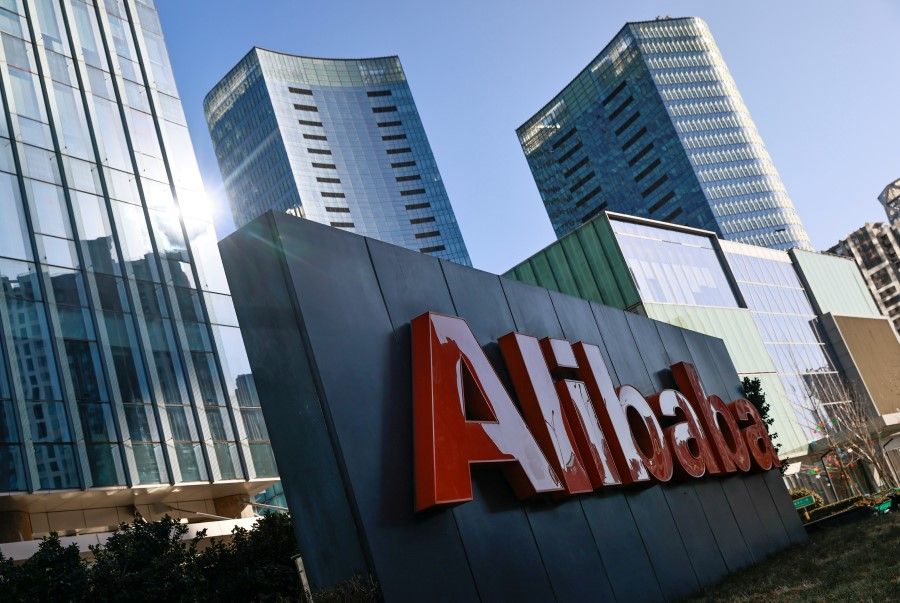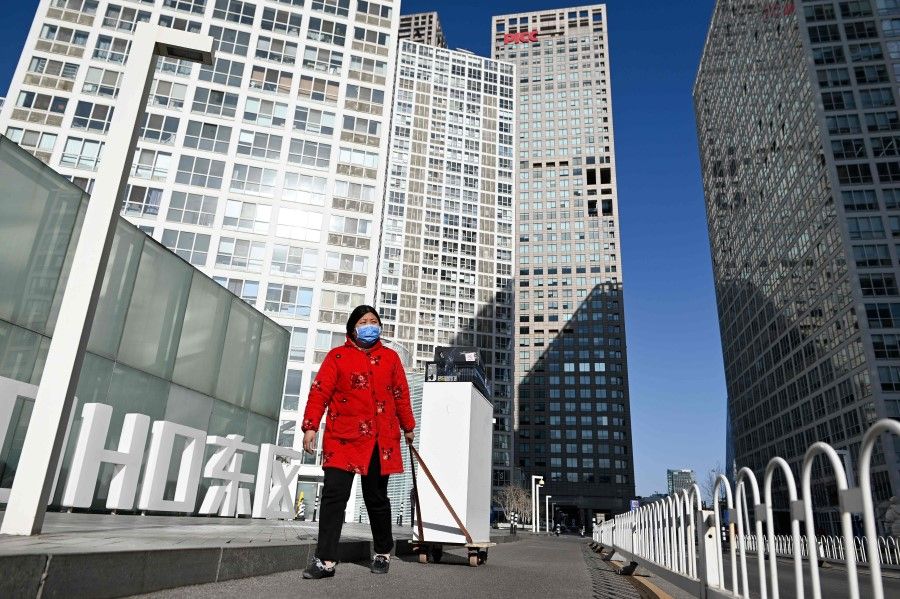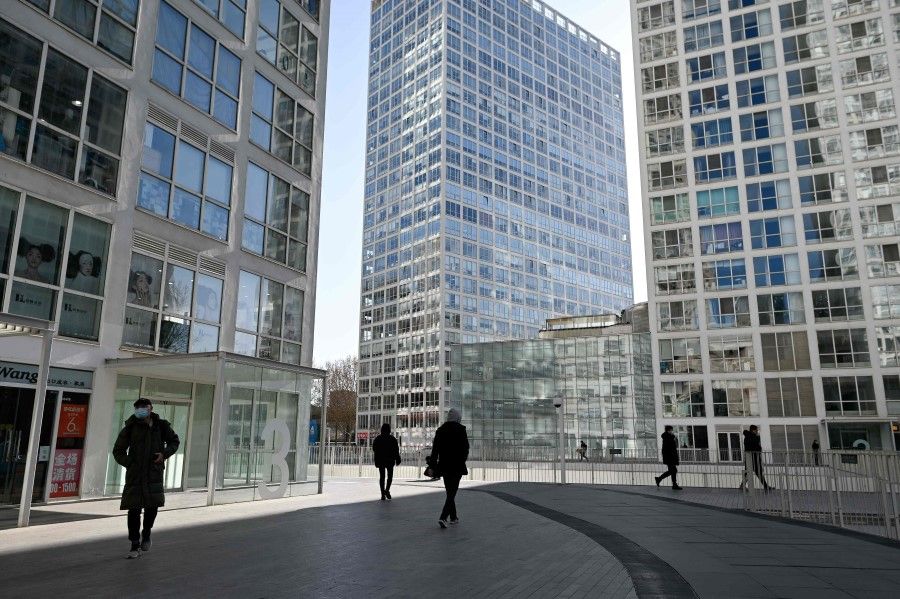Alibaba probe: China's challenges in dealing with monopolies start with the state-owned enterprises

2020 seemed about to end quietly amid the pandemic, but the anti-monopoly investigation on Alibaba by China's regulators lent a bit of drama to the close of the year.
On 24 December 2020, the State Administration for Market Regulation (SAMR) announced that it had opened an investigation and probe into alleged monopolistic activities by Alibaba such as implementing exclusivity agreements. Subsequently, four agencies including the People's Bank of China (PBOC) and the China Banking and Insurance Regulatory Commission (CBIRC) also spoke to Ant Group under Alibaba to get it to abide by the principles of marketisation and rule of law, so as to meet requirements of financial regulation, fair competition, and safeguarding consumers' legal rights, and standardise the running and development of financial operations.
On the one hand, an anti-monopoly investigation into the parent company; on the other hand, financial regulation of its subsidiary. China's most powerful and wealthy departments came down like lightning, like the two "generals" in Chinese chess. With zero wriggle room, Alibaba had no choice but to surrender.
True enough, the companies in question quickly said they will make the necessary changes.
The problems with Alibaba brought up by the regulators may be there, but anti-monopoly measures and financial regulation seem to be unrelated. So how did they get thrown together? In taking strong action against monopolistic activities, how do we balance law enforcement with innovation, and law enforcement with the rule of law?

Government's intention is to strengthen regulation
As mentioned above, there are two parts to the enforcement against Alibaba: anti-monopoly under the SAMR, and financial regulation under the PBOC and CBIRC. The loudest voice speaking out against monopoly belongs to the government, whose true intention is probably to strengthen financial regulation. We could say it is a mix of feinting and real action, both covert and overt. Why so?
Before joining the World Trade Organization (WTO), China's financial sector was state-run only; companies and local governments were not allowed to participate. Even business-to-business lending was ruled to be invalid in court and was unprotected by law. After 2006, there were calls to allow foreign investments, and it was also difficult for ordinary people to get funding, which put pressure on this system. Besides a partial opening up to foreign investments, China also loosened financial regulations for the general public, and closed one eye to offline microfinance companies.
... the government would face the wrath of public opinion if it just talked of taking back exclusive rights to financial operations, which is why it is packaged with anti-monopoly measures.
Surprisingly, after 2012, under the banner of entrepreneurship and innovation, offline and online peer-to-peer (P2P) microfinance companies sprang up everywhere. The problem was that the high returns promised by these P2P companies sucked away a lot of the people's savings - this moved the figurative cheese of state-owned banks. More importantly, the P2P system was simply a self-delusional, unsustainable, left-hand-to-right-hand Ponzi scheme.
In the end, the P2P companies imploded and the operators ran with the money. The people who were greedy for high returns were left with nothing and made a fuss as they tried to petition and meet the authorities, which sparked social conflict and affected social stability, leading the government to start to intervene and set things right. The PBOC's top lawyer said P2P companies will be reduced to naught (read: the state is taking back exclusive rights to the financial sector).
If so, then what is to be done with Ant Jinfu, JD Finance, or Tencent Licai Tong? These are essentially also microfinance companies.
Hence, it is necessary to strengthen financial regulations. Only thing is, the government would face the wrath of public opinion if it just talked of taking back exclusive rights to financial operations, which is why it is packaged with anti-monopoly measures.
'Year one' of an anti-monopoly era?
An American economist once said that when a company becomes a monopolistic wild boar, one had to stop it from running wild. The wisdom of economists is a constant reminder to those who enforce the law.
The fact is, since China's anti-monopoly law took effect in 2008, apart from the usual centralised management of operators, the authorities have shown a serious lack of awareness and measures in tackling monopolistic practices such as formulating monopolistic agreements, or acting against companies that misuse their dominant market positions. That is, China's anti-monopoly enforcement has been lukewarm.

But with China's anti-monopoly enforcement agencies quickly releasing rules and regulations such as draft amendments to the anti-monopoly law and a guide against monopolistic practices among internet platforms, as well as the investigation on Alibaba, and especially with a Politburo meeting establishing the strengthening of anti-monopolistic measures and preventing the "disorderly expansion of capital", the bugle has sounded against monopolies, which means China will ramp up its anti-monopoly enforcement. We can expect China's anti-monopoly enforcement agencies to unsheathe their sharpest swords this year and clamp down harder, to make 2021 "year one" of the anti-monopoly era.
China's anti-monopoly enforcement should in fact focus on moving against administrative monopoly and preventing monopolies by state-owned enterprises.
Five points to balance
However, in its anti-monopoly enforcement, China has to balance the following points.
1. Balance between state-owned enterprises, private enterprises, and foreign enterprises
There is no doubt that the anti-monopoly law is applicable to all entities. Domestic or foreign funded, state-owned or private, large or small, online or traditional - all these enterprises are treated equally.
Even so, given that state-owned enterprises have a clear edge in the national economy, China's anti-monopoly enforcement should in fact focus on moving against administrative monopoly and preventing monopolies by state-owned enterprises. The main problem with the market remains the inadequate development of private enterprises. The presence of state-owned enterprises has significantly undermined the strength, advantages, and chances of monopoly of private enterprises.
One technical problem in anti-monopoly enforcement is how to define the market where the products of Alibaba and Ant Jinfu are competing. With the presence of China Mobile, China Telecom, and a host of joint-stock banks - especially state-owned commercial banks - it is difficult to say that Alibaba and Ant Jinfu hold a monopoly. In fact, companies such as Ant Jinfu and WeChat Pay have resolved customer service issues that state-owned enterprises and banks are unmotivated to resolve, mostly through technology, competition, sensitivity to the market, and a flexible system, rather than a monopolistic edge. Correctly identifying and demarcating the market of competition is a technical and political challenge for anti-monopoly agencies.
2. Balance between anti-monopoly measures and encouraging innovation
The growth of online technology has led to a thriving world economy and global technological improvements. Of course, while technology giants bring social advancement, they are also accused of suppressing the competition through monopoly. How do we formulate rules of the game to break monopolies without hindering technological innovation? Or avoid the situation described by the economist Professor Zhang Weiying - engaging in anti-competitive behaviour under the banner of being anti-monopoly?
3. Balance between strong enforcement and upholding the spirit of rule of law
How do enforcement agencies keep a balance between strong enforcement and the spirit of rule of law?
First, the rule of lex retro non agit - the law does not operate retroactively. China's anti-monopoly law only took effect in 2008. Insufficient enforcement capabilities and the lack of related rules meant a half-hearted effort, where enforcement agencies were coming up with regulations even as they were enforcing the law. Hence, in the absence of pre-existing rules, the principle of lex retro non agit must apply, that is, the rules of 2020 should not apply to prior disorderly or marginally irregular actions.
Second, presumption of innocence. While Alibaba's actions do not constitute criminal offences, the legal principle of presumption of innocence still applies. Even as the enforcement agencies apply the law strictly, a light touch would be more in line with the spirit of the rule of law.
Even the most impressive company is small before the power of the state.

Third, strict application of the law and due process. Even the most impressive company is small before the power of the state. In enforcing anti-monopoly laws, how does the SAMR protect the defendant's right of defense, right of interpretation, and right against self-incrimination (right to silence), as well as their real and procedural right to a lawyer and expert defense, and right to trial?
4. Balance between use of government authority and market inclusiveness
Forty years of reform and opening up has been a constant process of adjusting the relationship between the government and the market. It has been proven that strict government control leads to slow economic growth, and vice versa. Similarly, in enforcing the law, enforcement agencies also need to keep a balance between strict enforcement and market inclusiveness. This is a test of the principles and wisdom of the enforcers.
China's National People's Congress is comparatively weak in enacting (much less enforcing) anti-monopoly laws. The fact is, it is the administrative enforcement departments that lead legislation: the rules are drawn up and also enforced by the anti-monopoly agencies.
5. Balance between "monopoly" of anti-monopoly powers and encouraging public participation
While the US mainly deals with monopoly through litigation, China takes the European approach, where enforcement agencies practically "monopolise" anti-monopoly powers, and litigation by the people is not encouraged, even if it is allowed.
At the same time, unlike legislative bodies such as the US Congress, Council of the EU, and the European Parliament, China's National People's Congress is comparatively weak in enacting (much less enforcing) anti-monopoly laws. The fact is, it is the administrative enforcement departments that lead legislation: the rules are drawn up and also enforced by the anti-monopoly agencies.
This creates three problems. First, legislation and administration/enforcement are integrated, leading to a lack of objectivity. Second, there is a significant lack of sophistication in the Chinese legislative structure. Third, insufficient overall safeguards for stakeholders, especially the rights of defendants.
As anti-monopoly measures take hold and hopefully with more experience, China's anti-monopoly legislative and enforcement agencies will improve.
Related: Regulating new technologies: Singapore and China can work together | China's e-commerce 'big four' locked in cut-throat battle | China's distrust of private enterprises goes back a long way | China's tightening fintech regulations may benefit Ma Yun's Ant in the long term | China to clamp down on monopolies and spur domestic demand
